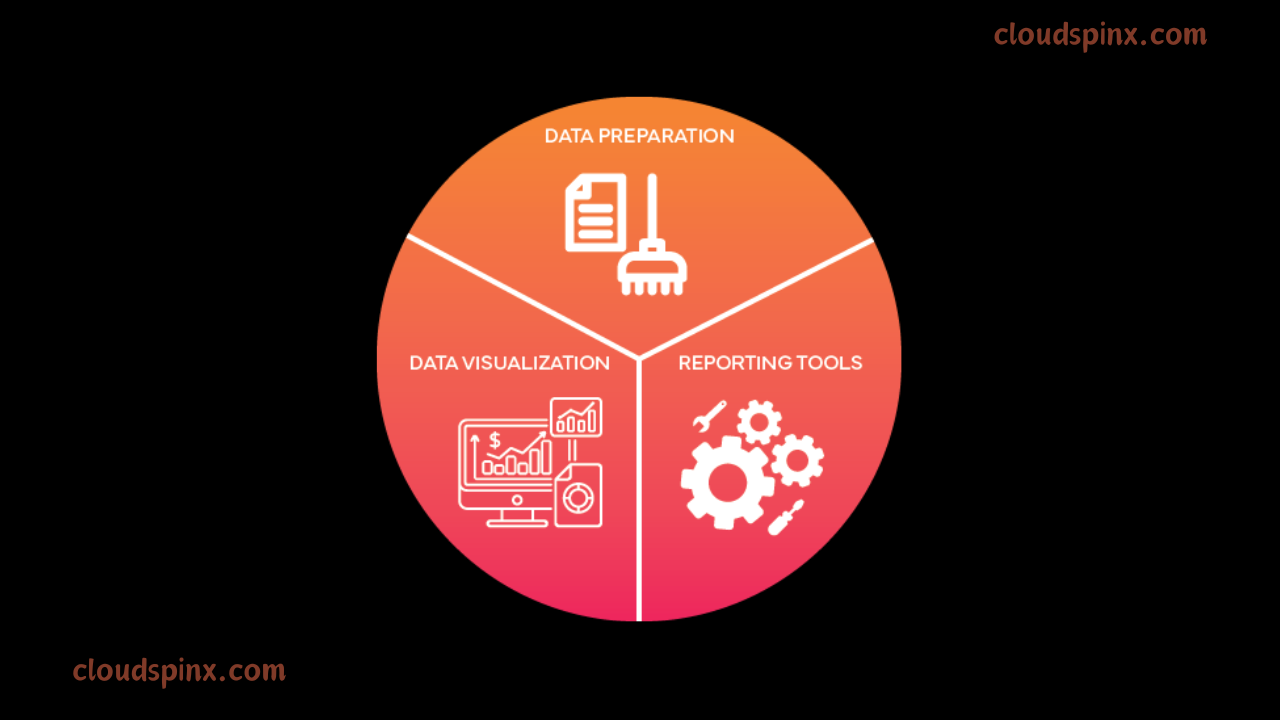Every now and again, a new technology enters the world of business intelligence that further innovates the field. While these innovations typically focus on the scope and precision of data analytics, more recent developments have touched on accessibility.
Self-service analytics has become a pioneer tool for businesses that want to give their staff complete access to their company data. Instead of needing specific subject knowledge in data engineering, self-service analytics boost accessibility by providing users with quick and direct access to insights.
If you’re interested in decreasing data bottlenecks in your business and working toward a more autonomous form of working, then incorporating self-service analytics tools should be at the top of your agenda for 2023.
In this article, we’ll explore everything you need to know about this technology, demonstrating why your business should be interested and how self-service analytics can empower your team.
What Are Self-Service Analytics?
Self-service analytics is all about making data as convenient as possible for users. Instead of having to ask a data engineering team to produce insights, self-service analytics allows teams to generate their own insights with ease – no technical knowledge needed.
Acting as a form of business intelligence, self-service analytics helps businesses stay agile, remove bottlenecks in data accessibility, and drive toward progress. Self-service analytics empower every single member of your team to inspect and dive into the data themselves.
When turning to a self-service analytics solution, you’re removing the middleman that IT or data architects provide, boosting autonomy in your workforce. In short, you’re giving your employees all of the tools that they need to successfully navigate our data-driven world.
Why Are Self-Service Analytics Becoming More Important?
Businesses that act with data at their core are, time and time again, more successful than those that do not. There’s a reason that 94% of businesses state that data is vital to the growth of their business. Yet, as we continue to produce more data, overwhelming organizations with a constant flow of information, actually leveraging that data is becoming more of a stagnant process.
Unless an individual is familiar with data tools and how to accurately play with data to form insights, this mounting tide of information is only a worrying force. While we should all be data literate, this isn’t going to happen overnight. In the meantime, self-service analytics allows users to get insight rapidly.
Instead of waiting around for your IT or data teams to respond to a request, you can empower your team to jump into action. This ability to work independently further inspires innovation, helping employees to follow their curiosity by themselves.
What Are the Benefits of Self-Service Analytics?
Self-service analytics can help your staff build familiarity with data tools, ensuring that they can access insights whenever they’d like. While you’ll still need a data team to actually integrate your data warehouse to this tool and ensure all of your data pipelines remain up and running, it does cut out the final part of creating insights for others.
Self-service analytics allows your team to rapidly create new insights, helping to supplement their work with data-driven methods – no matter whether they work in marketing on in HR.
There is a range of benefits to self-service analytics that your business can take advantage of:
- Data Democratization
- Real-Time Analysis
- Decrease IT Workload
Data Democratization
The vast majority of self-service analytics tools will embed into your larger cloud data warehouse to give your employees a complete oversight of all of the data they can manage. While companies once had to turn important data into self-service tools, which then allowed them to start analysis, the connection between warehouse and self-service analytical tools creates a streamlined flow.
If we take a look at a comparison of some of the leading cloud data warehouse platforms, like Clickhouse vs Druid, we instantly see their ready compatibility with these new services. As our data architecture becomes more advanced, this will only further lead to users being able to turn to self-service tools whenever they’d like.
Data warehouses will dismantle data silos. With the application of self-service analytical tools onto these resources, you then create unbridled access for your teams. This represents the complete data democratization for your business, helping everyone make this a core part of their work system.
Real-Time Analytics
Most of the time, businesses will want up-to-date statistics so they can act in that very moment. If you’re working by asking your IT team to create insights, then there will always be a gap between the time frame where you want insight and whenever the team has time to create it for you.
By giving each team member the ability to conduct their own research and gather their own insights, you pave the way for real-time analytics. Instead of waiting, your team can simply use self-service tools to get instant insight. From there, they can put the information to work, continuing on with their workload with the knowledge that whatever they’re doing is backed by data.
Decrease IT Workload
As we push further into an era where almost every action we take in business is closely related to data, IT and data teams are at an all-time maximum workload. Beyond delivering insights to your business, they still have to continue building data pipelines and ensuring that your data systems remain healthy.
By turning to self-service analytics, your teams can produce insight whenever they’d like. This means that they no longer have to ask the IT team for help. Without these extra tasks, your data and IT teams can focus on more important tasks, like building the data architecture of the future.
Cutting about menial and laborious tasks helps everyone to focus on the work that they see as most productive for the business as a whole. Over time, the movement away from total dependency on these teams will help significantly increase workplace productivity – with everyone from the IT team to each and every department that uses data benefitting.
Final Thoughts
Self-service analytics ushers a new age into data accessibility. As these tools continue to rapidly grow in popularity, more businesses than ever before are making them a core part of their strategy. From empowering their teams to ensuring that every decision taken within a business is data-driven, self-service tools help modernize businesses into the digital age.
Beyond just providing efficiency, these tools also level the playing field. For those that aren’t data-conscious or able to modify and inspect data on a whim, these tools simplify the process. With this, absolutely anyone can get started with the power of data.









